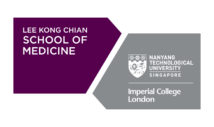Research Themes
Palliative care uses a holistic approach to improve the quality of life of patients with life-limiting illnesses. Research in palliative care is mostly focused on cancer patients and they have been shown to improve patient and caregiver satisfaction, quality of life, symptom burden and healthcare utilisation.
Patients with end organ diseases also experience high symptom burden which adversely affects their quality of life. Preliminary findings show that palliative care benefits patients with end organ diseases by supporting them and their caregivers. However, access to palliative care for this patient group is still limited due to challenges in prognostication.
Further study is required to help us better prognosticate so that patients may receive more timely referrals for palliative care. Additional studies will also provide more evidence and insights into the specific benefits of palliative care for this patient group.
A model of care broadly underscores the organisation of healthcare services and its delivery. It delineates the framework, the underlying principles, the core components of care delivery and the structure of implementation.
Due to the multi-faceted nature of end-of-life care, a wide range of services is required to holistically support patients with life-limiting illnesses as well as their families. The model of care used to deliver these services can affect the quality of care.
Against the backdrop of a rapidly ageing population and increase in the number of people living with multiple chronic conditions, the development of an adaptable model of end-of-life care is required to meet these changing complex needs. Models have to be dynamic in order to respond to changing demographic demands, adapt to structural and policy changes in the health system, and sensitively consider socioeconomic and cultural contexts.
Further research is required to evaluate the effectiveness of newly developed and implemented care models. We welcome well-designed studies that analyse and demonstrate the effectiveness of various palliative care models.
Provision of palliative care in the community such as home care increases the probability of home deaths, fulfilling the wishes of individuals who want to die at home. Community palliative care can potentially reduce healthcare utilisation. It has also been found to increase family and patient satisfaction and provide support to families to continue care at home. Similarly, systematic reviews on palliative day care centres show that patients feel positive about the experience of attending day care through experiencing a renewed sense of meaning and purpose.
We welcome more studies to demonstrate community palliative care’s clinical effectiveness and its effect on patient and caregiver well-being. Despite the increasing demand for community palliative care services in response to an ageing population, there exists few high-quality research on the aspects of palliative care that can best support patients and their families in the community.
Family caregivers provide unpaid care and support to family members or friends who have terminal illnesses. Caring for a loved one at the end-of-life can be challenging and complex as they deal with issues such as symptom management, cognitive decline, functional dependency, anticipatory grief and ultimately bereavement when the loved one passes on.
Supporting caregivers is an important component of palliative care as it can be extremely stressful mentally, physically and emotionally to care for someone with a life-limiting condition. They may also burn out if care has to be provided over a prolonged period of time.
The needs of patients are commonly studied and have received more attention than those of family caregivers. Additionally, current palliative care services are geared towards supporting caregivers of individuals living with cancer.
The challenges of an ageing population include an increase in the number of people with end organ diseases and chronic conditions. There is also the risk of suffering from multiple co-morbidities, which makes end-of-life care more challenging and complex. There is a pertinent need to adapt and modify existing services to assist caregivers of individuals with non-malignant illnesses who have needs that are different from caregivers of cancer patients.
Advancements in medical sciences have reshaped the circumstances surrounding death. Its intervention at the time of death may sustain the lives of patients. However, for patients with life-limiting illnesses, these interventions may prolong the suffering and dying process instead of bring healing and recovery.
Sustaining the life of a patient without meaningful existence raises various ethical issues such as treatment futility and non-beneficence. Technical advances in the care of terminal patients have created ethical challenges for physicians, patients, and families at the end-of-life.
We welcome research that investigates existing practices and frameworks, while exploring and proposing new and viable models, frameworks and methods in reframing/reclaiming/repositioning the moral discourse in palliative medicine and care.
Palliative care education of healthcare professionals is a key component of their training. Many are ill-equipped to deal with issues concerning death and dying. Some also feel inadequate with providing end-of-life care.
Palliative care was only incorporated into the undergraduate medical curriculum in recent years. It exposes students to the medical sub-specialty, improves attitudes towards caring for patients with life-limiting illnesses, and provides them with the appropriate frameworks and methodologies in the management of palliative care patients.
However, the nascent undergraduate curriculum has limitations in its practical application. Continued education in post graduate palliative care thus helps to renew and advance the capacities and competencies of practicing physicians.
Developing insights into the effectiveness of new and existing training programmes will help academics and curriculum developers keep up to date with the relevant practical and pedagogical aspects of palliative care education.









